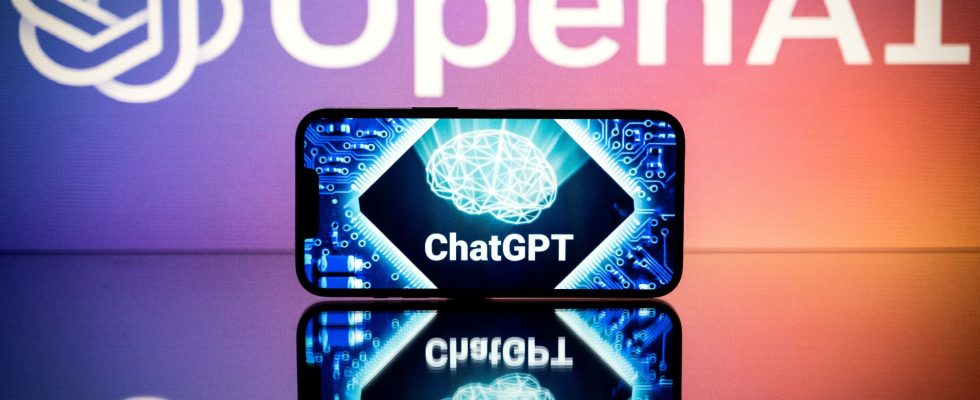“On the Internet, no one knows you’re a dog.” Posted in the New Yorker, Peter Steiner’s famous drawing with his two stuffed animals using a computer perfectly sums up one of the fundamental characteristics of the Web: the anonymity it offers Internet users. Even if this anonymity is far from being total (the authorities can identify who is hiding behind a nickname), this feeling of being able to surf incognito has shaped for better and for worse the way we use the Internet. In the shadows, some dare to denounce an injustice or talk about their most outdated hobbies, others unfortunately take advantage of it to harass their neighbors. Behind profiles that seem “human”, however, sometimes hide computer programs (the bots). And with generative AIs, there are likely to be more and more of them.
These are indeed capable of producing texts and photos that we would swear were made by humans. This poses dizzying challenges. First, that of false information. The “photos” of Emmanuel Macron demonstrating against his own pension reform posted on social networks were obviously made for the joke, but other “fakes” may be more difficult to detect. The risk is not so much that Internet users believe it blindly, but that they are overwhelmed by a wave of artificial content and end up doubting everything, even proven facts.
“Generative AIs will also challenge the entire economic model of the Web,” underlines Laurent Daudet, co-founder of LightOn, a start-up specializing in AI. If ChatGPT can synthesise me the best information to bake a chocolate cake, understand the industrial revolution or fix my computer, why would I indeed click on the blogs, forums and media that provide this information in the first place? However, without clicks, there is no advertising revenue, on which many of these sites are based. In return, generative AI offers great tools for the information and communication sectors, the beating heart of the Web. A promotional email to promote the offer of a neobank, photos of paradisiacal beaches for an ad, LinkedIn messages to get in touch with potential customers… ChatGPTs and other Midjourneys are able to generate personalized texts at full speed and spectacular visuals. The advertising giant WPP made no mistake about it: it has just signed a partnership with Nvidia in this area.
“Generative AIs have no notion of truth”
For journalists too, these tools will be useful even if it is necessary to think carefully about what is acceptable to delegate to them and what must remain in human hands. In particular, the verification of information, because “generative AIs have no notion of truth”, recalls Luc Julia, co-creator of the famous Siri assistant from Apple, now scientific director of Renault. However, they excel in producing syntheses. Quickly identifying the key points of reports in hundreds of pages can therefore save time for these professionals.
ChatGPT will even help them “brainstorm” by suggesting various options of titles or plans. The fact that generative AIs are able to “speak” so realistically even opens the door to new ways of searching for information online. With ChatGPT, the futuristic computers with which SF literature abounds are closer to us than ever. The media therefore have an interest in preparing for a switch to more vocal interactions. And to further strengthen their ties with their community of readers because, in the Web of tomorrow, they risk wandering less often at random from site to site, from one Google page to another.
Even if artificial intelligence poses a challenge to the media, it should at the same time revitalize them. A digital space filled with content of dubious authenticity and a little slick style could well mark the end of the web of buzz that has seen click farms abound, these sites paying small hands with a slingshot to “stick” rudimentary way any news and rumors – if not simply plagiarizing from the media. With generative AIs making it possible to produce this type of low-end content even faster and at even lower cost, these sites are already beginning to proliferate. This will undoubtedly sign their death warrant: they will cannibalize themselves in terms of advertising and their omnipresence risks boring Internet users for good. This should increase the value of the media providing added value, such as the assurance of having unpublished, verified information and publications making an original “voice” heard. With texts which we feel were not written by a machine, nor by a dog, but by a human in flesh and blood.
